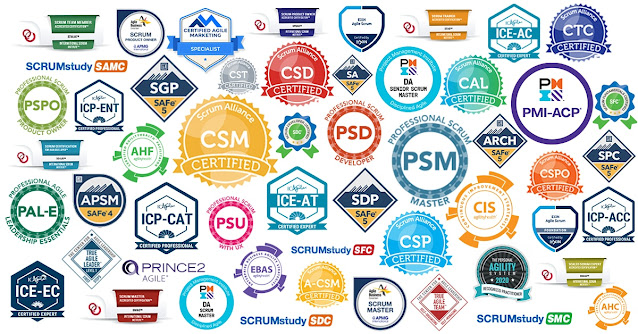Is It Still Worth Getting Scrum Certificates? Exploring the Value in 2023 - Michał Opalski /ai-agile.org
In the agile world of project management and software development, Scrum has stood the test of time as a leading framework. Since its inception, professionals have sought Scrum certifications as a means to validate their skills, improve their employability, and advance their careers. But as we navigate the landscape of 2023, is it still worth getting those certifications? Let's delve into the pros and cons.
The Case for Scrum Certifications:
Credibility and Recognition: Holding a Scrum certification, such as the Certified ScrumMaster or Certified Scrum Product Owner, immediately signals to employers and peers that you've taken the time to understand the intricacies of the methodology. It's a stamp of credibility that can open doors to new opportunities.
Skill Enhancement: Preparing for certification isn't just about passing a test; it's a journey of learning. Many professionals find that the structured training process deepens their understanding of Scrum principles, roles, and ceremonies.
Networking Opportunities: Engaging in Scrum training sessions can offer invaluable networking opportunities, bringing together like-minded professionals with a shared passion for agile methodologies.
Stay Updated: The world of agile is dynamic. Pursuing certification ensures you're updated with the latest best practices and trends.
The Skeptics' Perspective:
Cost and Time: Achieving a Scrum certification often requires a considerable investment in terms of both time and money. Some argue that hands-on experience can be just as valuable, if not more so, than formal training.
Overemphasis on Paper Qualifications: There's a risk in placing too much emphasis on certifications over real-world experience. Just because someone is certified doesn't necessarily mean they're adept in real-life Scrum scenarios.
Expiration and Recertification: Some Scrum certifications require renewals. This could mean additional costs and time investments in the future.
The Changing Landscape: With the emergence of new methodologies and frameworks, there's always a question of how relevant Scrum will remain. While it's still prominent now, the tech world is known for its rapid shifts.
In Conclusion:
The value of a Scrum certification varies based on individual goals and circumstances. For those new to the agile world or looking to switch careers, a certification might provide the necessary edge. For seasoned professionals, hands-on experience and a proven track record might speak louder than a certificate.
In the end, the decision to pursue a Scrum certification should be rooted in personal career goals, industry demands, and a genuine desire to master the methodology, rather than just adding another accolade to one's resume.


